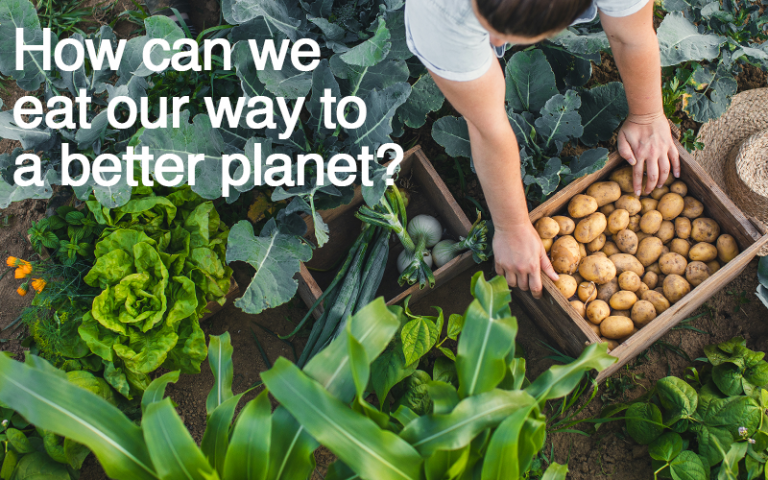How can we eat our way to a better planet?
UCL researchers are tracking the environmental impact of food production on the environment to help industry and individuals make healthier and more sustainable choices.

- What action can I take?
Have a look at the carbon footprint of your favourite foods.
Pledge to take this action via the 'thumb up' icon - in the 'Pledge your action' box to the right (desktop) or below (mobile).
Inspire others by sharing this page and/or your pledge on social media. Use #UCLGenerationOne #COP26 #ClimateUCL @UCL @SustainableUCL.
The average UK household spends some £3300 every year on groceries. And as environmental awareness grows, many people want to spend that money in ways that protect biodiversity and the climate.

Dalin’s research assesses the sustainability of food production and trade.
“What we would like is for consumers to be able to make better and more informed choices. And so that means putting across multiple sources of information in a digestible way.”
Better choices
How can we encourage people to choose more sustainable foods? Ideally, Dalin says, negative impacts on the environment would be priced into food: the cheapest products would also be the greenest, and less sustainable products made more expensive.
“That’s not always possible,” she admits. “We also need to consider the impact on people’s access to food. We shouldn't increase the price without thinking of those consequences and trying to mitigate them.”
What about food miles? “Local isn’t always better for the environment. Despite the carbon emissions produced by transport, the overall impact could be less if something is produced much more efficiently elsewhere.”

“Lots of people say we should stop importing fruit from Africa due to the airmiles, for example, but actually how many people does that employ? And how does that relate to economic development?”
Boakes says the government should consider new labels on food to help consumers navigate the various environmental impacts of different products. (Some organisations including UCL already add carbon labels to foods offered in canteens).
Plants not meat
Amid all this complexity, there is a simple step that almost everybody can take to minimise the environmental impact of their food.
“Buy and eat less meat,” Boakes says. “Calorie for calorie, plant-based food is going to have a lower environmental impact.” Several departments at UCL have followed the advice and joined a campus-wide decision to only provide 100% vegetarian catering across events and meetings.

“The meat industry is one of the least sustainable sectors, emitting 51% of annual greenhouse gas emissions and clearing 88% of rainforests for grazing. We’re overwhelmed with the commitment that the UCL community has shown in pushing sustainability to the front of UCL’s agenda and leading us towards a sustainable future.”
Plant-based diets are also healthier, points out Eric Brunner, professor of social and biological epidemiology at UCL. “First, it’s possible to get excellent nutrition from plants in terms of micro and macro nutrients,” he says. “And second, it’s possible to have a lower calorie intake than someone who’s eating a processed diet containing a lot of meat. And that means you avoid a range of issues associated with being overweight and obese.”
Higher meat intake is associated with higher levels of chronic disease, Brunner adds.
Change the menu

“Just as with all environmental issues, this is partly about individuals, but also partly about government and industry. It’s about the kind of messages we get.”
What sort of messages? Many schools no longer teach domestic science, he says, so pupils enter adulthood without the shopping and cooking skills needed to prepare healthy meals for themselves.
“We really need to shake up all the different aspects of what we could call the food system. Starting with education and agriculture and working our way through food processing and food distribution, to food retailing and catering.”
 Close
Close

